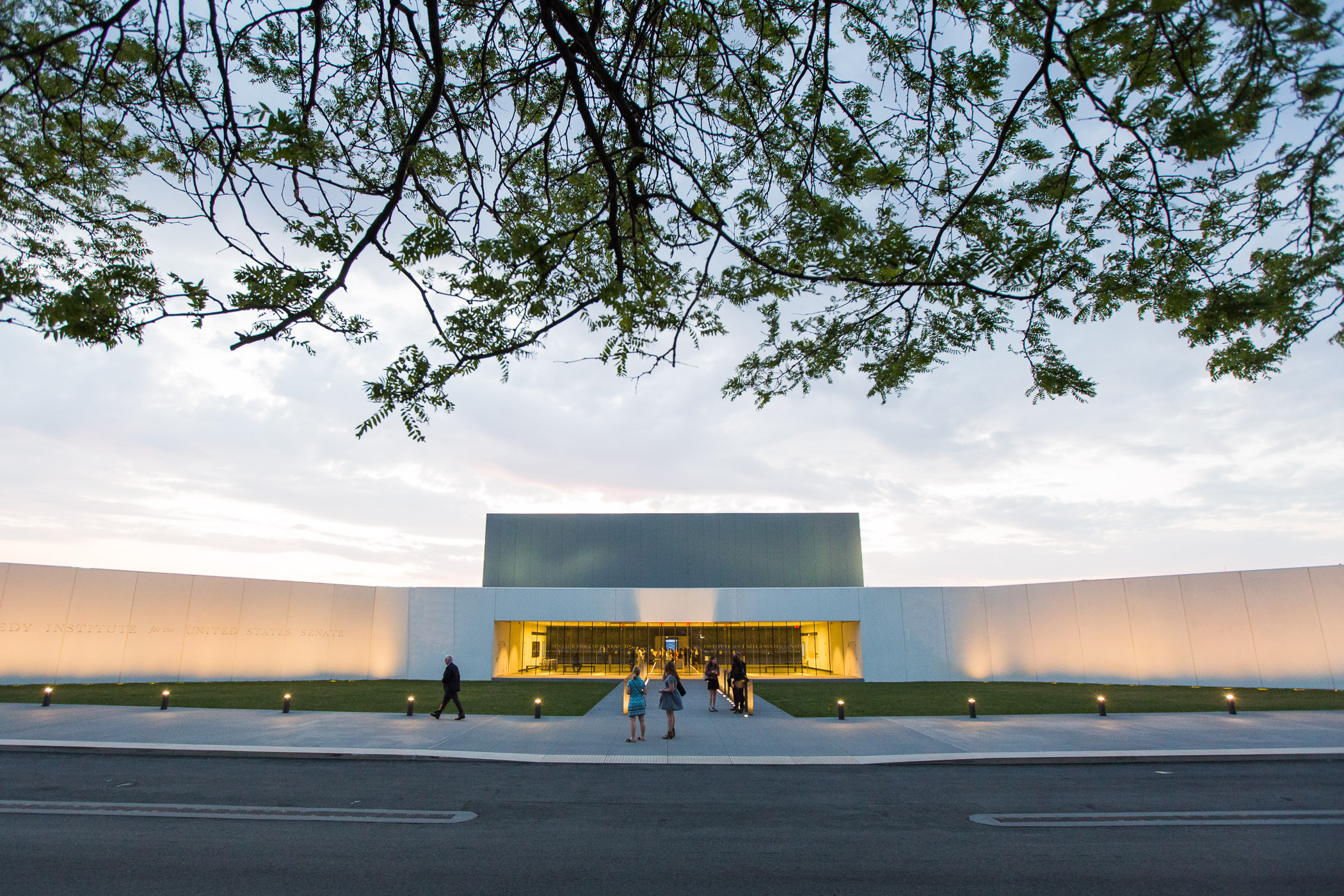An innovative proposal to help middle- and high-school teachers guide students in classroom conversations on current, sometimes-contentious issues has been named the recipient of the inaugural Leonore Annenberg Institute for Civics (LAIC) Award by the Annenberg Public Policy Center of the University of Pennsylvania.
The Edward M. Kennedy Institute for the United States Senate, based in Boston, has been awarded the $200,000 prize to develop a program to help 8th through 12th grade teachers develop the skills necessary to lead productive classroom discussions on difficult public policy issues such as immigration, gun violence, and voting rights.
The first phase of the two-year program calls for the development of a pilot program called “Civil Conversations” with 16 teachers in four Massachusetts school districts. In its second year, the project will be rolled out to additional schools in a dozen areas across the country with teaching materials such as workbooks, multimedia materials, and facilitation guides.
“The Kennedy Institute’s project addresses the challenge of developing students’ aptitude for productively and civilly engaging with opposing views,” said Kathleen Hall Jamieson, director of the Annenberg Public Policy Center (APPC). “Accomplishing that objective could not only transform the lives of those students but also provide a model for projects elsewhere.”
The problem: The decline of a healthy civic climate
The alarming lack of civics knowledge among many Americans is well-documented. Only a third of U.S. adults can name the three branches of government and an equal number cannot name any of them, according to the 2018 Annenberg Constitution Day Civics Survey. The Kennedy Institute’s proposal will address not just the lack of civics knowledge but the broader lack of vital civic skills and dispositions – such as considering multiple perspectives, a desire to engage people of dissimilar backgrounds, and a willingness to seek shared solutions – that have led to the decline of a healthy civic climate in our country.

“We’ve been hearing from teachers in Massachusetts that they are having an increasingly difficult time handling these conversations,” said Caroline Angel Burke, the Kennedy Institute’s vice president of education, visitor experience & collections. “Educators want to ensure that diverse conversations occur, but are not always equipped with the necessary tools to do that.”
The program, she suggested, is not intended for students to reach agreement on issues, but to “learn how to discuss issues and respectfully disagree.”
Fostering dialogue on tough topics
The Edward M. Kennedy Institute for the United States Senate, a nonprofit envisioned by the late Sen. Ted Kennedy, is dedicated to educating the public about the important role of the Senate in government, encouraging civic participation, and invigorating civil discourse.
Its winning project aims to create a community of practice for educators, developing and teaching methods to foster dialogue on tough topics. Teachers selected for the project will take part in professional development workshops and use a variety of techniques to work with students on reflection and an examination of values, family, and cultural beliefs, as well as constructive conversational techniques.
“This project has strong mission alignment for us,” said Mary K. Grant, Ph.D., president of the Kennedy Institute. “The United States Senate is a deliberative body and successful senators are able to have difficult conversations with each other. They are able to grapple with tough topics, understand gray areas, and find common ground. The Kennedy Institute’s civic education programs offer students and visitors the opportunity to practice these skills every day, and we are pleased to have this opportunity to bring more of our programs out beyond our walls. We see projects like ‘Civil Conversations’ as key tools in closing what we call the ‘democracy gap,’ and are grateful to the Annenberg Public Policy Center for its support and leadership.”
The project will be implemented in collaboration with several organizations and individuals, including Essential Partners, a nonprofit organization in Cambridge, Massachusetts, that seeks to foster constructive conversations on difficult topics using strategies developed through family therapy; the Multiplying Good Students in Action program, which develops high school students into community leaders; and Karen Ross, Ph.D., of the University of Massachusetts Boston, an expert in conflict resolution who will conduct project evaluation.
The Leonore Annenberg Institute for Civics Award
The Edward M. Kennedy Institute’s project was chosen from proposals submitted by partners of the Civics Renewal Network, a consortium of 33 nonprofit, nonpartisan organizations dedicated to strengthening civic life in the United States. The organizations in the Civics Renewal Network seek to improve civics education in schools by making available no-cost, high-quality learning materials through its website.
 The Civics Renewal Network is a project of the Leonore Annenberg Institute for Civics (LAIC), a program of the Annenberg Public Policy Center. With this first award, LAIC has begun an annual competition to find an exemplary project that would improve civics education in the nation’s elementary, secondary, or high school classrooms. The Leonore Annenberg Civics Award competition is open to partner organizations in the Civics Renewal Network.
The Civics Renewal Network is a project of the Leonore Annenberg Institute for Civics (LAIC), a program of the Annenberg Public Policy Center. With this first award, LAIC has begun an annual competition to find an exemplary project that would improve civics education in the nation’s elementary, secondary, or high school classrooms. The Leonore Annenberg Civics Award competition is open to partner organizations in the Civics Renewal Network.
“With this new award program, the Leonore Annenberg Institute for Civics seeks to foster the development of inventive resources and methods for civics education from some of the leading authorities in the field,” said Ellen Iwamoto, who runs civics education projects at the Annenberg Public Policy Center.
The Annenberg Public Policy Center (APPC) was established in 1993 to educate the public and policy makers about the media’s role in advancing public understanding of political, health, and science issues at the local, state, and federal levels
Download this news release here.

